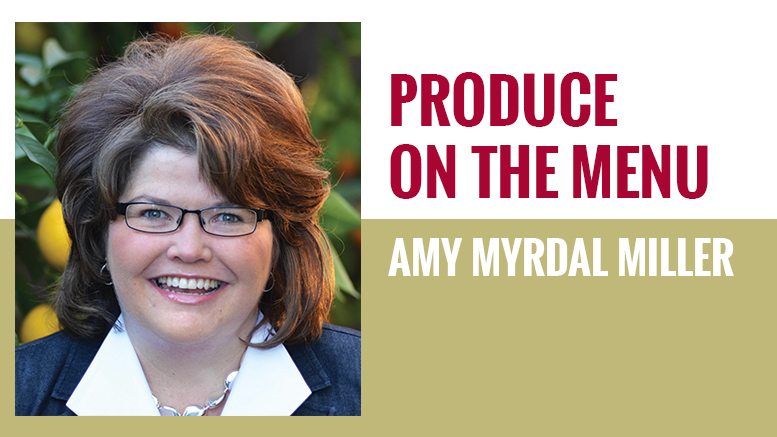Prolonged Uncertainty
September 30, 2020 | 4 min to read
During the pandemic, foodservice operators' emotions fluctuated between worry and confidence, with nearly two-thirds feeling their businesses could survive. Many restaurants adapted by creating community meal programs and offering household items. Notably, Chez Panisse launched an online marketplace to engage customers. While 89% are providing takeout, most report sales declines; however, some chains, like Olive Garden, see increases. Future success hinges on menu innovation, focusing on health, regional flavors, and creative offerings.

Originally printed in the September 2020 issue of Produce Business.
When shelter-at-home orders started, foodservice operators were nervous. How long would this last? There were extreme levels of optimism and pessimism among operators. Today, most operators are worried but still confident their operation will survive the pandemic.
Datassential research shows nearly two-thirds of operators across all industry segments, from QSR and fast casual to healthcare, campus dining and K-12, are “worried, but fairly confident their operation can get through this in one piece.” The highest rate of nervousness and lowest rate of optimism is in lodging, an industry hit especially hard during the pandemic.
We have seen many new survival models emerge across independent restaurants, including using staff to create meals for essential workers, homeless or the elderly. We have also seen restaurants not only offering food from a now limited menu but also offering ingredients and household supplies.
Alice Water’s acclaimed Chez Panisse Restaurant and Cafe in Berkeley, CA, has opened an online Chez Panisse Marketplace. Patrons can place an online order on Tuesday for pickup on Friday, or order Friday for pickup on Sunday. In addition to sandwiches on freshly-baked bread and other menu offerings that travel well, you can also order produce for use at home or sunflowers for mood-brightening floral arrangements. All of this is an effort to keep some staff employed and loyal customers engaged, which is an important issue for restaurants as we watch habits shift during the pandemic. What new habits will we keep after a vaccine is widely available, and what old habits will we return to after health and safety concerns subside?
When asked to predict the future of their businesses, operators across all channels except corporate dining anticipate waiting until at least the first quarter of 2021 to return to pre-pandemic traffic levels.
Nearly nine of out 10 of restaurants (89%) are offering carryout or takeout options from their menus. Fewer (72%) offer curbside pickup due to increased staffing demands of that model. Not surprisingly, the vast majority of operators (76%) report sales declines compared to before the pandemic, but what surprises many is the fact that 15% of operators report sales increases, including large chains like the Olive Garden and Outback Steakhouse.
When asked to predict the future of their businesses, operators across all channels except corporate dining anticipate waiting until at least the first quarter of 2021 to return to pre-pandemic traffic levels. Corporate dining operators anticipate work-from-home agreements to reduce their business significantly.
So, what does all this mean for the produce industry? It depends on who you sell to. If you sell produce to schools, think about individually-packed items. If you sell to restaurants whose businesses will slowly come back, think about smaller pack sizes. If you have a chef on your team, make sure he or she is ready to help with menu innovation in the coming months. Right now, more than half of operators have limited menus. But as customers start to grow weary of seeing the same items again and again, and as thoughts move to health and wellness in January, restaurants will need to expand their menus again. What can you offer that fits the brand identity of the restaurant’s menu, is on-trend with diners who care about health and immunity, and has value-added benefits for operations struggling with labor costs and constraints?
One interesting insight from Datassential is the rise in regional foods and flavors on limited menus. Familiarity offers comfort and soothing during stressful, uncertain times. How can your produce item offer this to diners as we move forward? Don’t just think about food; think about cocktails as well that include fresh juices, fresh produce garnishes, herbal infusions and more. While there is so much uncertainty right now about the future of foodservice, one thing is clear: We are all going to need a few more cocktails to get through this!

Amy Myrdal Miller, MS, RDN, FAND is a farmer’s daughter from North Dakota, award-winning dietitian, culinary nutrition expert, and founder and president of Farmer’s Daughter Consulting, Inc. She is consultant for the Produce for Better Health Foundation, a member of the Texas A&M AgriLife External Advisory Board and a member of the Bayer Vegetable Seeds Horticultural Advisory Council. You can learn more about her business at www.farmersdaughterconsulting.com, and you can follow her insights on food and flavor on social media @AmyMyrdalMiller
2 of 25 article in Produce Business September 2020

